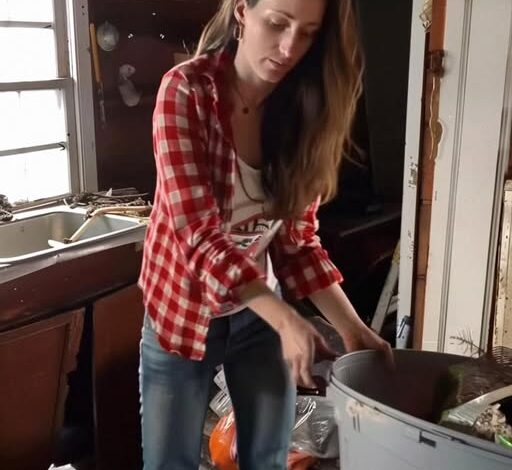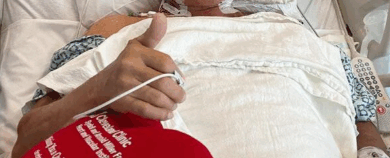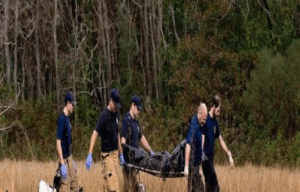
They Laughed at My Worthless Inheritance, Then a Black SUV Pulled Up with an Offer That Shut Everyone Up
When my grandfather passed away, I wasn’t expecting much. In my family, I’d always been seen as the underachiever, the one who didn’t quite measure up. No Ivy League diploma to brag about at Thanksgiving, no corner office with a view, no glamorous spouse to parade around like a trophy. By the time the will was read, I already knew what was coming: another reminder of where I stood in the family pecking order.
The reading of the will felt like a slow public roast. My cousins beamed as the lawyer detailed their inheritances—trust funds, investment accounts, shares in companies I’d never even heard of. My uncle nearly clapped when he learned he was getting a collection of antique jewelry and rare coins. My older sister, who hadn’t even spoken to Grandpa in years, walked away with stocks and his prized Rolex.
Then it was my turn.
The lawyer cleared his throat and slid a single document across the polished oak table. A property deed. My inheritance was a decaying farm miles outside town, a place no one had set foot in for years. No running water, no electricity, half a roof at best. To make matters worse, the deed came with unpaid back taxes attached like leeches.
The room went silent, then burst into laughter. My aunt was the first to snort. My cousins made jokes about demolishing haunted houses, one even humming a horror movie theme under his breath. “You’ll lose money just tearing it down,” someone chuckled.
I should have felt humiliated, but instead, something in me hardened. If Grandpa had written my name on that deed, there had to be a reason. Maybe it wasn’t obvious to anyone else, but I wasn’t ready to believe it was just a cruel joke.
So, a week later, I drove out to the property.
The old farmhouse sagged against the sky like it was holding its last breath. The porch dipped to one side, the siding had faded to the color of ash, and the windows were so thick with grime they looked like cataracts. Knee-high weeds swallowed the yard. It looked worthless, just like they all said. But instead of walking away, I pulled on gloves, grabbed a rake, and started clearing brush. I didn’t know what I would do with the place, but at the very least, I could honor my grandfather by not letting it rot into the ground.
That’s when I heard tires crunching on gravel.
A sleek black SUV rolled slowly to a stop by the gate. Its paint gleamed like liquid ink, its windows tinted dark. Out stepped a man in a tailored suit and polished shoes that had never touched mud. He carried a leather folder under his arm and walked toward me like he already owned the place.
“Are you the new owner?” he asked.
I nodded warily. He handed me a business card and introduced himself as a representative of a development company. They had been trying to buy this property for years, he explained, but my grandfather had refused every offer without even entertaining negotiations.
Then he opened the folder and slid a sheet of paper into my hand.
It was an offer—one so large it nearly knocked the air out of my lungs. A number so outrageous it would have silenced every smirk and every cruel laugh at the will reading. Enough money to erase debts, build a future, maybe even buy back some dignity in the eyes of those who had written me off.
I stood there in the dirt, boots caked in mud, a trash bag slumped by my side, staring at the figure on that page. And in that moment, I understood exactly what my grandfather had done.
This wasn’t a punishment. It was a test.
Everyone else had received easy gifts—things they could liquidate without a thought, treasures that required no effort, no faith, no vision. But me? I was given a wreck. A property no one wanted. Something everyone else dismissed as worthless. And in that rejection lay the truth: Grandpa hadn’t left me a burden. He’d left me the one thing that mattered most—a choice.
He had turned away every previous offer, holding onto the land, enduring nuisance calls and letters, because he wasn’t waiting for the highest bidder. He was waiting for the right heir. Someone who wouldn’t immediately laugh, toss the deed in a drawer, or sell it for scraps. Someone who would drive out here, stand on this dirt, and see more than a ruin.
Everyone else had walked away from the will richer in the short term. But I was standing on a legacy disguised as rubble.
That day, I realized my grandfather had bet on me all along.
He didn’t want me to inherit shiny things to flaunt. He wanted me to inherit responsibility, vision, and the chance to prove myself in a way no stock certificate ever could. He trusted that I would be stubborn enough to show up, curious enough to dig deeper, and patient enough to see what others couldn’t.
The laughter at the will reading had stung, yes. But as I held that offer in my hand, I knew something none of them did: the inheritance they mocked had turned out to be the jackpot, and not just in dollars. It was a final gift of faith from the man who believed in me, even when no one else did.
And for the first time in years, I didn’t feel like the family disappointment. I felt like the one my grandfather had chosen all along.




